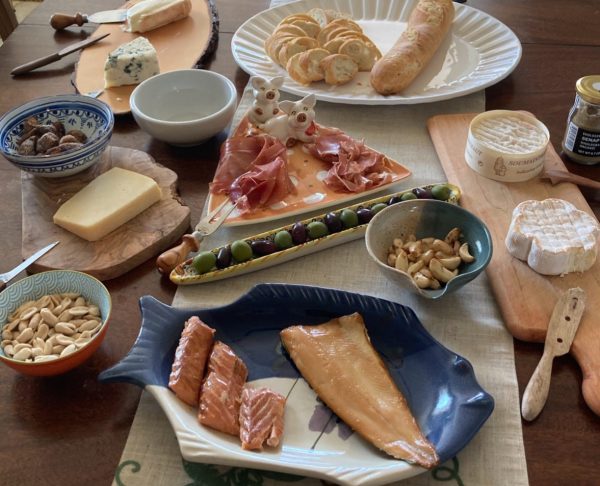David Dalglish’s Skyborn Breaks the Ceiling with Sky-High Flying
Skyborn is fantasy-writer David Dalglish’s dystopian envisionment of a brother-sister combo, Bree and Kale Skyborn, who begin an intense adventure of destined aerial combat and element-wielding ferocity. In Dalglish’s fantastic creation of a world, an ancient race of demons has forced humanity to ascend into the skies on massive floating islands that hover above the water. These six islands, including the main characters’ home, Weshern, host the remnants of a civil war-torn society on the brink of their own callous destruction.
Watching over these incredibly vibrant and agile conflicts is a mystical and religion-driven third party known as the Theotechs, beings who provide the six islands with their elements and metal wings. The Theotechs are humanity’s devotees of their god, a people who impose all morality and judgement over the six islands.
What the book does well is illustrate a masterpiece of elemental-aerial combat that is both immense in scale and brutal to the eyes. Some fantasy novelists do a poor job of accurately describing the total scale and damage of such a conflict, but Dalglish gets it right. When immersed in his novel, lightning feels like lightning, fire burns like fire, ice freezes or skewers the opponent alive, and earthen stone crushes its opponents. Each image is detailed, even though Dalglish doesn’t use a lot of complex and descriptive words. As the reader, you feel the action, and you embrace it.
What Dalglish gets wrong is the plot. It’s not that it’s bad, but that it’s just above mediocre. Realistically, when I first read Skyborn, I kept going for the characters and action, not the story. Dalglish does a great job creating characters, character-relations, and large-scale battles, but the plot is so fantasy-based that it feels unoriginal. The entire plot is based off tropes of good vs. evil, corrupted religion, and overpowered main characters.
Another problem with Skyborn is how generic the power system is. Sometimes, simple is better, but in this case, it’s a little too simple. For some people, a simplistic and understandable power system, a system which defines how a character or characters gain or utilize strength, makes a novel easy to read and good on the eyes, but for a hardcore fantasy and role-playing game fan, it’s just… not enough.
In Skyborn, power is created in the form of glowing stones called elements. These elements are light, fire, ice, lightning and earth. Light elements make the metal wings on Bree and Kale’s backs fly, while Bree’s fire and Kale’s ice act as their offense. However, while this elemental system makes Dalglish’s aerial battles intense, I’m not the biggest fan of its mass appeal to the average reader. I find that simple power systems make character definition soft. For example, if a character wields darkness as an element in a story, wouldn’t you want to know what branch or style of darkness that opponent wields? Does this character use dark spells to put people to sleep? Or do they camouflage themselves using dark-based magic?
If you read the novel through its entirety, you’ll surely find these aspects in Bree and Kale Skyborn, but what about the characters around them? What if an antagonist or sub-protagonist wielded an element in such a specific way that made the fight different and unique from all the others?
Overall, I’d rate Skyborn a solid 4 out of 5 dodged fireballs for the characters and battle scenes alone. Skyborn, being the first novel in Dalglish’s Seraphim series, is a real banger to start off with.










Betty Akers • Jan 27, 2020 at 10:16 AM
I thought it was well written. I understood what he was saying without reading the material. Good job!
Sandy • Jan 24, 2020 at 6:11 PM
Loved this review. Tried to give it 5 stars, but it accidentally said 0. And there is no way to correct it :(.
Rob Akers • Jan 24, 2020 at 8:36 AM
I like the detail. One this thing I didn’t understand was ” …..known as the Theotechs, beings who provide the six islands with their elements and metal wings. …” I didn’t understand what th elements were that were provided. Over all I like the style and vocabulary. This review would help me make the decision to read this book. Overall good job